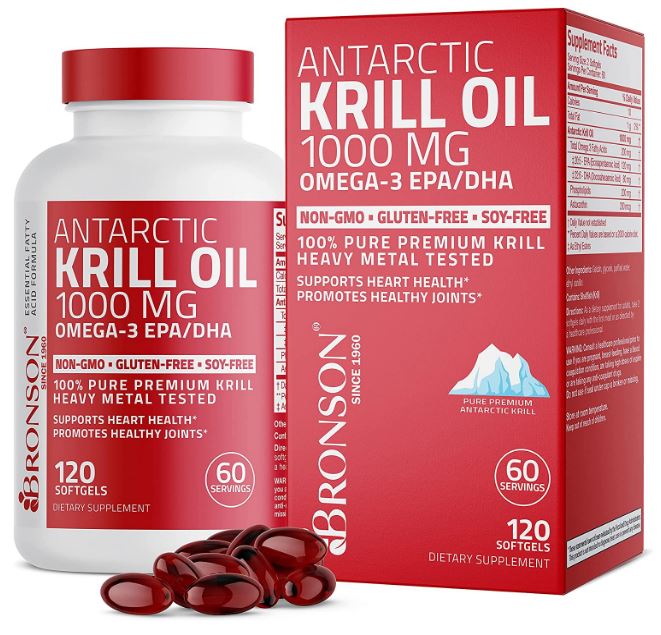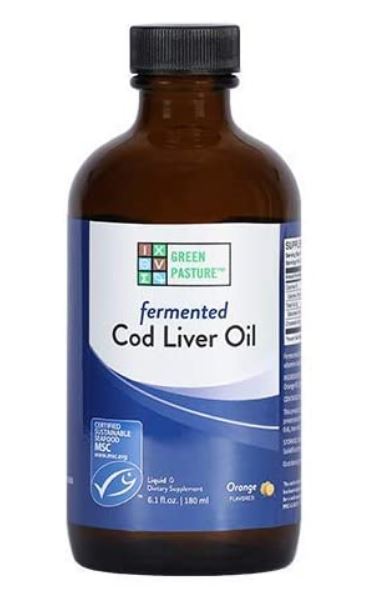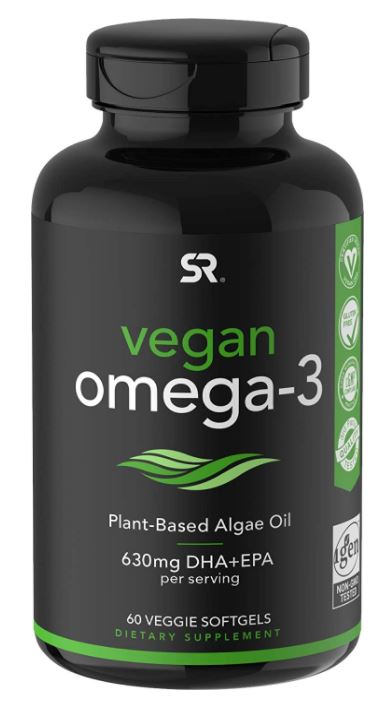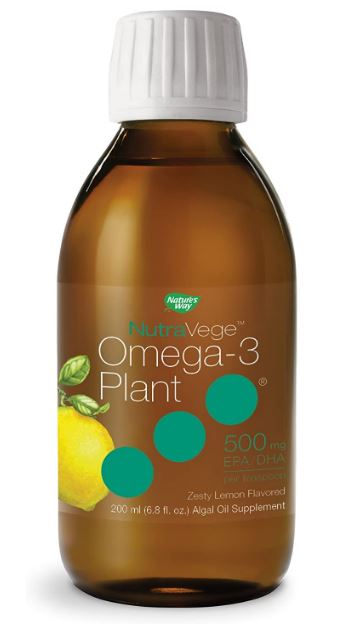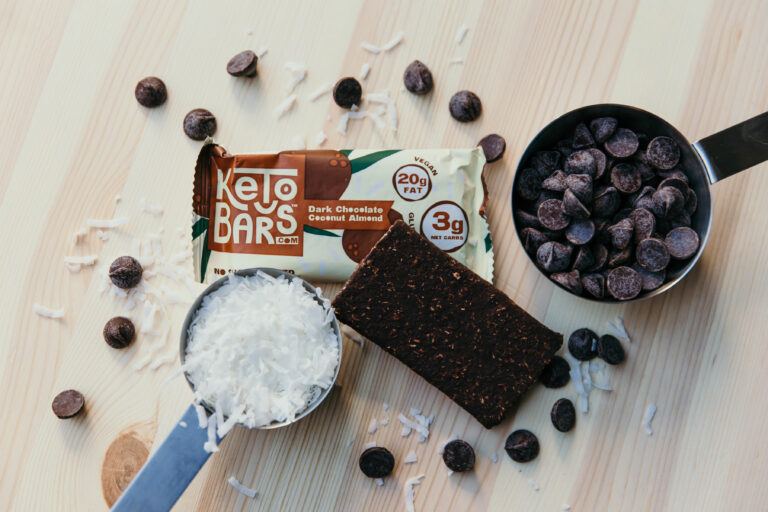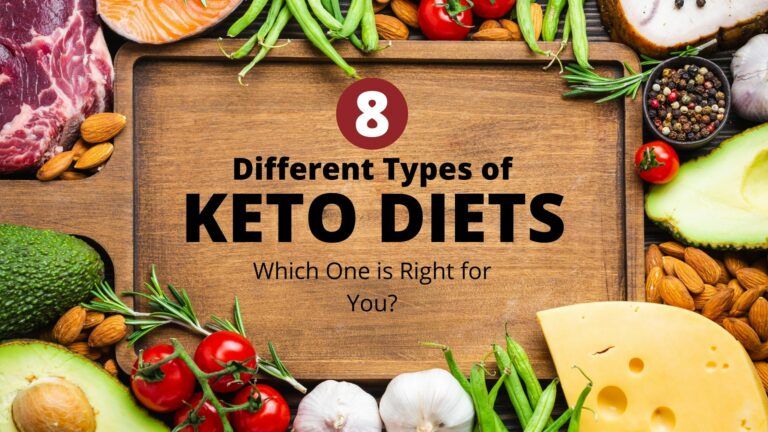4 Best Omega-3 Supplements – A Biologist’s Top Picks
Omega-3 fatty acids are essential nutrients that are important for optimal brain health and development, and for preventing and managing heart disease. Many people today do not consume enough omega-3s, however the bigger problem is the severe imbalance in the ratio of omega-3 to omega-6 fatty acids that are commonly consumed when eating a standard American diet.
Although it is possible to obtain an adequate amount of omega-3s from whole foods, supplementation can be beneficial in instances in which food preferences or availability of quality sources are limiting factors. Fish oil and algae sourced omega-3 supplements are great options, but beware, they are not all created equal.
What are Omega-3 Fatty Acids?
Omega-3 fatty acids are a form of polyunsaturated fat, and are classed as essential nutrients since they can only be obtained through your diet.
“Unsaturated” refers to the presence of double bonds within the molecular structure of the fat, and “poly” simply means many. “Omega-3” refers to the position of the final double bond within the chemical structure, which is three carbon atoms from the “omega” or tail end of the molecular chain.
Omega-3 fatty acids can vary in size and shape however; the three most common forms are:
Eicosapentaenoic acid (EPA) – A 20-carbon fatty acid that is known for its anti-inflammatory benefits.
Docosahexaenoic acid (DHA) – A 22-carbon fatty acid that makes up approximately 8% of brain weight and is critical for normal brain development and function.
Alpha-linolenic acid (ALA) – A 18-carbon fatty acid that is predominately used for energy. ALA can be converted into both EPA and DHA, but the process through which this occurs is extremely inefficient.
Fish and Fish Oil are Great Sources of Omega-3’s
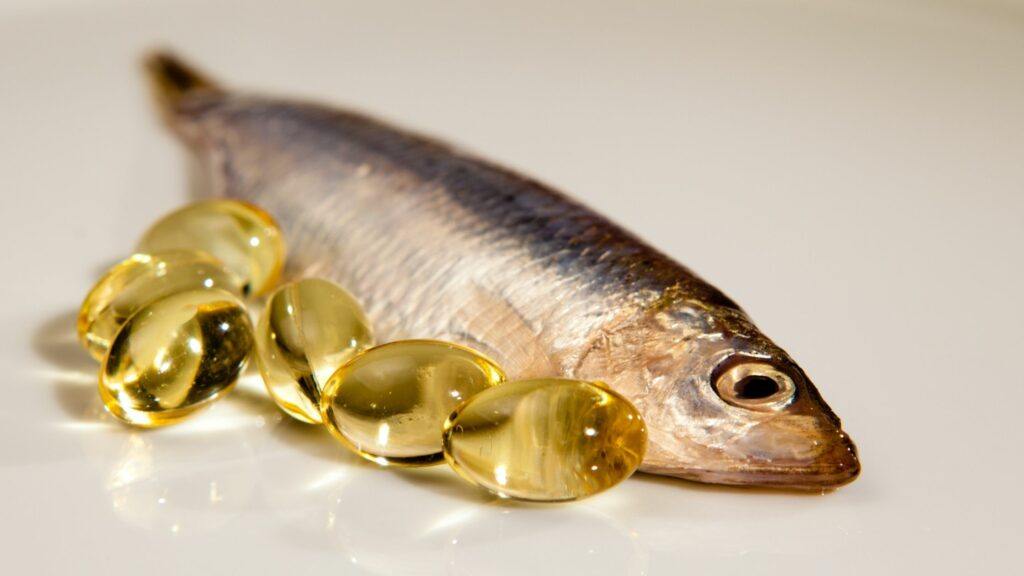
Fatty fish, or fish oil, contain large amounts of both EPA and DHA, while nut or seed sources of omega-3s, such as walnuts, chia, and flax contain only ALA. As mentioned earlier, ALA can be converted into EPA and DHA, however it relies on a particular enzyme that is often in short supply.
It has been estimated that ALA foods therefore offer less than 10%-15% of the omega-3 benefits as sources that provide EPA and DHA directly.
As important as it is to consume enough omega-3s, balancing the ratio of omega-3 to omega-6 fatty acids in your body is even more critical. From an ancestral and general health perspective, the ratio of omega-3 to omega-6 fatty acids in our bodies should be around 1:4, however if you are eating the standard American diet, you are likely consuming a ratio somewhere between 1:10 to 1:50.
Like omega-3s, omega-6 fatty acids are essential nutrients that offer substantial health benefits. The by-products of omega-6 fatty acid breakdown however, can increase inflammation and contribute to inflammatory disease. It is therefore extremely important to limit the amount of omega-6s in your diet, and properly balance them with anti-inflammatory omega-3s.
When it comes to achieving omega-3/omega-6 fatty acid balance, reducing omega-6 intake drastically by eliminating vegetable oils, grains and legumes, is recommended before adding an omega-3 supplement.
You may also want to watch your intake of other omega-6 rich foods such as almonds, pecans, pine nuts, pistachios, and hazelnuts if you are concerned about systemic inflammation.
Choosing the Best Fish Oil Supplement
The three most important things to consider when choosing a fish oil supplement are, the type of fish the oil is extracted from, the location from which the fish are sourced, and the process in which the oil is extracted.
Selecting the Best Type of Fish
As with all forms of seafood, wild caught sources are always best, and farmed fish (tilapia in particular) should be avoided whenever possible. In general, smaller fish such as sardines, anchovies, and krill are great sources for fish oil since they are low on the food chain and relatively short-lived.
Larger, long-lived predatory fish like sharks, swordfish, and bluefin tuna tend to have greater amounts of mercury and other metals in their tissue due to a process called “bioaccumulation”.
There are of course exceptions to this rule as there are several mid-size fish such as wild caught salmon, cod, flounder, and pollock that are also low in mercury and great sources for fish oil. This is due in part to where these species are caught, and particular aspects of their lifecycle.
The Purest Water Produces the Healthiest Fish Oil
Mercury is a natural element that is present in very small quantities in air, water, and all living things, however the burning of fossil fuels, and the discharge of other pollutants, contribute to unnaturally high concentrations of mercury and other contaminants in nearby areas.
For this reason, fish sourced from remote cold-water locations, far from human development, generally offer the healthiest option.
The Extraction Process
Heat, and/or chemicals such as hexane are commonly used in the oil extraction process. As you may recall from our earlier post about selecting the best oils for cooking, polyunsaturated fats are extremely fragile and will oxidize when exposed to light or heat. With this in mind, virgin cold-pressed fish oils are often marketed as the best option.
Unfortunately, heat and/or light exposure during transport and storage often result in even the purest forms of fish oil going rancid before you get them home, and consuming damaged omega-3 supplements is far worse than consuming none at all.
For that reason, our top two choices meet all of the source and extraction requirements, and they also offer natural preservatives that make them much safer to consume than standard fish oils.
Our Top 2 Fish Oil Supplements
#1 Bronson Antarctic Krill Oil
Krill are a small shrimplike shellfish that are high in EPA and DHA. Krill oil also contains two unique substances that set it apart from traditional fish oil supplements.
1) Phosphatidylcholine, which protects cell walls, supports cellular communication, and improves the cell’s ability to absorb nutrients.
2) Astaxanthin, which has considerable health properties, and prevents the oil from turning rancid.
Our preferred krill oil supplement is Bronson Antarctic Krill Oil. Unfortunately, krill oil is only currently available in capsule form and is therefore considerably more expensive by volume than our #2 option and other traditional fish oils.
However, because the omega-3s in krill oil are in phospholipid form (similar to human cells), rather than triglyceride form (standard fish oils), they are more easily absorbed and utilized.
#2 Green Pasture Fermented Cod Liver Oil
Cod liver oil is not as high in EPA or DHA as krill oil or other types of fish oils, however it does contain vitamins A, D, E and K2 while other sources of fish oil do not. The cold fermentation process also increases the stability of the oil, making it a much safer and health-promoting option than traditionally processed fish oils.
Fermented cod liver oil also offers a great option for those with specific shellfish allergies, and many people actually combine these two products to capitalize on their omega-3 and nutrient benefits.
It should be noted that although vitamin A is extremely beneficial for your eyes, skin, and immune system, it can be toxic if too much is consumed. Excess vitamin A can also be problematic during pregnancy, therefore it is important to consult with a physician before consuming any supplements.
I began consuming fermented cod liver oil after reading Nora T. Gedgaudas’s book Primal Body Primal Mind, a must-read for anyone interested in better understanding the evolution of the human diet.
The brand that Nora recommends, and the one I now take is Green Pasture fermented Cod Liver Oil. The liquid form is the most budget-friendly, but it is also available in capsule form for those that may not enjoy the taste.
Best Vegan Omega-3 Supplements (Algae Oil)

As mentioned earlier, most plant based sources of omega-3 oil, like flaxseed and pumpkin, only have ALA while algae oil often contains higher concentrations of both EPA and DHA than even krill oil by volume.
Some research has also suggested that omega-3 oil sourced from algae offers greater omega-3 absorption than krill oil and therefore provides even greater benefits. Algae is also a more sustainable source of omega-3 oils since it can be farmed outside of the ocean environment.
#1 Sports Research Vegan Omega-3
In a prior article I compared the top 10 brands of vegan omega-3 supplements and the Vegan Omega-3 by Sports Research came out on top.
The Sports Research Omega-3 algae oil is extremely high in EPA and DHA, is non-GMO verified, vegan certified, and good manufacturing compliant.
The Sports Research brand is also one of the only companies that offers an algae sourced omega-3 supplement that does NOT contain carrageenan.
#2 Nature’s Way NutraVege Omega-3 Plant
I was not aware of this plant based omega-3 supplement when I compared the top 10 vegan omega-3 supplement brands, however I did include it in my article outlining the three things you must consider when attempting vegan keto.
In a 1 tsp serving, Nature’s Way NutraVege Omega-3 Plant oil contains 200mg of EPA and 300mg of DHA sourced from algae oil.
If you are OK with the fishy taste, this liquid omega-3 supplement is the most cost effective option on our list. While it does contain a small amount of sunflower oil, which I generally try to avoid, it does not contain carrageenan.
Are you currently taking an omega-3 supplement? Which type and brand do you prefer? Please consider sharing your experience by commenting below in order to help others living a fit keto lifestyle.
Thank you for visiting LiveFitKeto.com. Check back often for new content or subscribe to our newsletter to receive updates on new articles, and if you have found this information helpful, please don’t hesitate to share.


